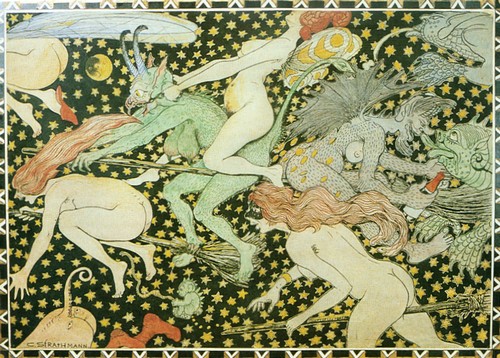
These are the three lieder included in this recital that we’ve listened so far, the three of them by Schumann:
- We’ve listened to Widmung twice. The first was in my post about 1840, the Schumann's Liederjahr, and was performed by soprano Marie Vassiliou and pianist Nico de Villiers. The second one was in a post on a few clichés and common places about art song. In that post, it was performed by Hermann Prey and Leonard Hokanson.
- Frühlingslied is, as the name suggests, a celebration of spring. It's one of the duos from the Liederalbum für die Jugend, that, as we discussed some time ago, is full of songs about spring. We listened to a beautiful version of this Lied: Felicity Lott and Anne Murray accompanied by Graham Johnson.
- Meine Rose is one of the most beautiful Schumann's songs, written as Frühlingslied during his second period as lieder composer (they are from 1849 and 1850 respectively). The version I chose to share with you, was the one by Christian Gerhaher and Gerold Huber.
- Das Wandern, sung by Fritz Wunderlich in two versions: at the beginning of his career and a few years later. In the first case, he was accompanied by Karl-Heinz Stolze, and the second one, by Hubert Giesen. In that post, I told you about the origins of the cycle.
- Morgengruß, the n. 8, with Mark Padmore and Paul Lewis. In this case, I explained to you several things about the poems from Die schöne Müllerin.
- Finally, we listened to Wohin?, the n. 2, on the post about the programme of the SV16. The performers were the same we're listening in Vilabertran, it was a live recording made at Wigmore Hall in 2014.
We're listening to Hexenlied in an unusual version. Dietrich Fischer-Dieskau used to avoid songs clearly related to female voices, and he didn't like those experiments that some gentlemen did with songs for ladies. However, he recorded Hexenlied and I tell you that, if ever I'm a witch, I want to be as aristocratic as those that Fischer-Dieskau sings. Wolfgang Sawallisch accompanies him.
Die Schwalbe fliegt,
Der Frühling siegt
Und spendet uns Blumen zum Kranze;
Bald huschen wir
Leis’ aus der Tür
Und fliegen zum prächtigen Tanze.
Ein schwarzer Bock,
Ein Besenstock,
Die Ofengabel, der Wocken
Reißt uns geschwind,
Wie Blitz und Wind,
Durch sausende Lüfte zum Brocken!
Um Beelzebub
Tanz unser Trupp
Und küßt ihm die kralligen Hände!
Ein Geisterschwarm
Faßt uns beim Arm
Und swchinget im Tanzen die Brände!
Und Beelzebub
Verheißt dem Trupp
Der Tanzenden Gaben auf Gaben:
Sie sollen schön
In Seide geh’n
Und Töpfe voll Goldes sich graben.
Ein Feuerdrach’
Umflileget das Dach
Und bringet uns Butter und Eier.
Die Nachbarn dann seh’n
Die Funken weh’n,
Und schlagen ein Kreuz vor dem Feuer.
Die Schwalbe fliegt,
Der Frühling siegt,
Die Blumen erblühen zum Kranze.
Bald huschen wir
Leis’ aus der Tur
Juchheissa zum prächtigen Tanze.













Comments powered by CComment